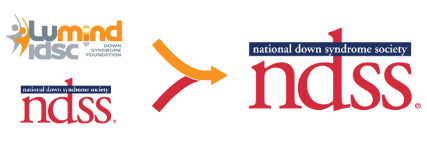BURLINGTON, Ma—(October 22, 2018)—Local nonprofit organization, LuMind Research Down Syndrome Foundation (LuMind RDS), opened its new office at 20 Burlington Mall Road in Burlington, Massachusetts on October 15, 2018. The foundation, which focuses on results-driven Down syndrome research, is relocating from Marlborough, Massachusetts, where it has been headquartered the last 4 years. To celebrate, LuMind RDS will host an open house reception in the new space on Thursday November 8th, 2018 from 5:30 p.m. to 8:00 p.m.
LuMind RDS’ new office is located in the same building as the Massachusetts Down Syndrome Congress (MDSC), the leading resource for Down syndrome information, networking and advocacy in Massachusetts. The two groups, who have collaborated in the past, plan to increase their work together as neighbors and just announced a partnership to better serve individuals with Down syndrome and their families. This space will now provide families with the unique opportunity in MA to access information, advocacy and support through MDSC and research resources through LuMind RDS in one convenient location.
All parents, advocates, self-advocates, friends and family are welcome to join the team of LuMind RDS at the unveiling of their new office. Refreshments will be served, and guests will have the opportunity to learn more about the latest in Down syndrome research. For more information or to RSVP, please visit www.LuMindRDS.org.
# # #
ABOUT LUMIND RESEARCH DOWN SYNDROME FOUNDATION:
LuMind Research Down Syndrome Foundation is dedicated to enable independence and enrich community engagement for all individuals with Down syndrome by identifying and accelerating high impact research.
Established in 2004, we have awarded $18M in research grants to fund groundbreaking projects at top academic institutions and biopharmaceutical companies leading to more than $50M in concurrent funding from the NIH, industry and other sources. LuMind RDS-supported research has led to the discovery of 10 therapeutic targets, the development of 3 Down syndrome-specific cognitive assessment scales, 15 interventional and observational clinical trials with more than 1300 participants and the initiation of several consortia.
